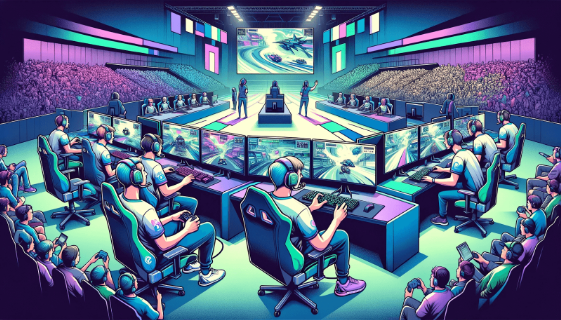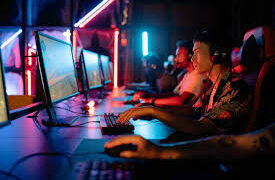
Esports has grown from a casual hobby to a competitive field, attracting millions of players and fans worldwide. Whether in team-based games like League of Legends, first-person shooters like Counter-Strike, or mobile games like Battlegrounds Mobile India (BGMI), the qualities that make a player great are largely universal. Many people wonder what sets top players apart from the rest.
In this guide, we’ll explore the essential qualities that contribute to making a great esports player and how these skills can be developed.
1. Teamwork and Communication
For team-based esports, like League of Legends, Overwatch, or BGMI, teamwork and communication are critical. Winning in esports often depends on how well a team works together. Great players understand that communicating clearly and effectively with teammates is essential. They share information about enemy locations, coordinate attacks, and support one another during matches.
Many players use voice chat to communicate in real-time, ensuring they can plan strategies on the fly and respond to sudden changes. In games like BGMI, where players often practice in BGMI custom rooms to improve their team’s chemistry, communication is a skill that requires consistent effort. Practicing as a team and learning how to communicate under pressure can make a big difference in actual tournaments.
2. Knowledge and Strategy
Understanding the ins and outs of a game is critical for any player looking to become great. This includes knowing the game’s rules, mechanics, maps, and strategies. For games like BGMI, knowing each map layout and understanding where to find the best resources or hideouts can give players an advantage.
Strategic knowledge separates casual players from top competitors. For example, in team-based games, understanding the strengths and weaknesses of each character or player type can help form a balanced and effective team. Strategic thinking also means reading opponents and predicting their next moves. Players who know the game deeply are more adaptable and can quickly adjust to new strategies as they appear in the gaming community.
3. Adaptability and Problem-Solving
Games often change with updates, patches, and new strategies, requiring players to adapt constantly. Great esports players can quickly adjust to these changes and continue performing well. Adaptability also comes into play during matches; for example, if a strategy isn’t working, a player should be able to switch tactics on the spot.
Problem-solving is a related skill that allows players to navigate difficult situations. For instance, if a team falls behind in points or resources, they must find a way to turn the game around. This may involve setting traps, surprising the enemy, or finding new routes to victory. Great players stay calm, think quickly, and make effective decisions, even in high-stress situations.
4. Mental Toughness and Focus
Gaming requires intense concentration, often for extended periods. Players need to stay focused on the game, blocking out distractions. Great esports players develop strong mental toughness, allowing them to perform well even under pressure. Whether it’s a crucial moment in a championship match or a heated online tournament, staying focused and composed is essential.
Mental toughness also involves resilience. Players may face setbacks, such as losing a match or making a costly mistake. Rather than giving up or becoming discouraged, great players learn from their mistakes, remain positive, and focus on improvement. This resilience is often what separates top players from those who can’t handle the pressure.
5. Consistency and Reliability
A great player is someone their team can depend on. Consistency is key in esports, as it means delivering solid performances regularly. Reliability also includes being punctual and prepared, especially in competitive settings. Professional teams expect each player to show up on time for practices, keep up with training, and be mentally ready to compete.
Being consistent doesn’t mean every game is perfect, but great players maintain a level of performance that their teammates can count on. Consistency also applies to practice schedules, where regular gaming sessions help refine skills and develop new strategies. For games like BGMI bgmi scrims registration is very easy. You can join various social media platforms.
Conclusion
Becoming a great esports player requires more than just skill in a game. It takes a combination of quick reflexes, in-depth game knowledge, teamwork, adaptability, and mental toughness. Players who dedicate themselves to constant improvement, practice in custom rooms, and participate in scrims gain valuable experience that helps them grow and succeed in competitive gaming.






